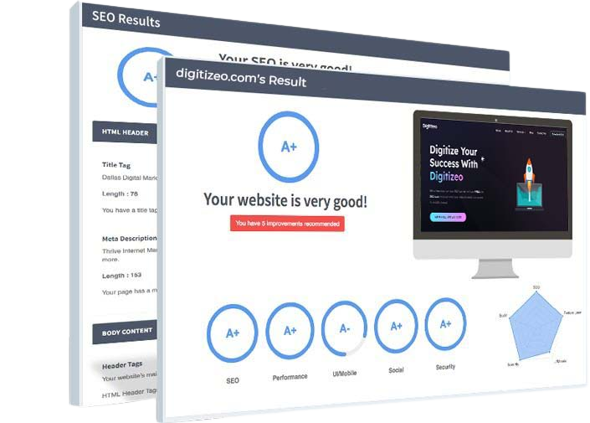In today’s competitive business landscape, growth marketing has become a crucial aspect of achieving success. With the ever-evolving digital world, traditional marketing strategies are no longer enough to drive sustainable growth. Growth marketing focuses on implementing data-driven strategies and tactics to achieve rapid and scalable business growth. It is a holistic approach that combines various marketing channels and techniques to attract, engage, and retain customers.
The importance of growth marketing cannot be overstated. In a world where consumers are constantly bombarded with advertisements and information, businesses need to find innovative ways to stand out from the crowd. Growth marketing provides a framework for businesses to identify and leverage opportunities for growth, enabling them to stay ahead of the competition and achieve long-term success.
Key Takeaways
- Growth marketing is a strategy that focuses on driving business growth through experimentation and data-driven decision making.
- Growth marketing is important for business success because it helps companies acquire and retain customers more effectively.
- Understanding your target audience is crucial for growth marketing because it allows you to tailor your messaging and tactics to their needs and preferences.
- Crafting a compelling value proposition is essential for growth marketing because it helps you differentiate your brand and communicate your unique benefits to customers.
- Measuring and analyzing your growth marketing results is key to optimizing your strategy and achieving long-term success.
What is Growth Marketing?
Growth marketing can be defined as a data-driven approach to marketing that focuses on achieving rapid and scalable business growth. Unlike traditional marketing, which often relies on broad-based strategies and mass advertising, growth marketing takes a more targeted and personalized approach. It involves analyzing data, conducting experiments, and optimizing campaigns to drive measurable results.
One of the key differences between growth marketing and traditional marketing is the mindset. Traditional marketing often focuses on brand awareness and reaching a wide audience, whereas growth marketing is more focused on driving specific actions and outcomes. Growth marketers are constantly testing and iterating their strategies based on data and insights, allowing them to optimize their efforts for maximum impact.
Understanding Your Target Audience for Growth Marketing
Understanding your target audience is crucial for effective growth marketing. By knowing who your customers are, what they want, and how they behave, you can tailor your marketing efforts to resonate with them on a deeper level. This requires conducting thorough audience research.
Audience research involves gathering data about your target audience’s demographics, interests, behaviors, and preferences. This can be done through surveys, interviews, social media listening, and analyzing website analytics. By understanding your audience’s pain points, motivations, and desires, you can create targeted marketing messages that speak directly to their needs.
Crafting a Compelling Value Proposition for Growth Marketing
| Unique Value Proposition | A statement that clearly explains what sets your product or service apart from the competition. |
| Customer Segments | The specific groups of people or businesses that your product or service is designed for. |
| Market Research | The process of gathering and analyzing information about your target market, including their needs, preferences, and behaviors. |
| Competitive Analysis | An evaluation of your competitors’ strengths and weaknesses, as well as their products or services. |
| Value Proposition Canvas | A tool that helps you visualize and refine your value proposition by identifying customer needs and pain points. |
| Key Performance Indicators | Metrics that measure the success of your value proposition, such as customer acquisition cost, conversion rate, and customer lifetime value. |
A value proposition is a statement that communicates the unique value your product or service offers to customers. It is a crucial element of growth marketing because it helps differentiate your business from competitors and convinces potential customers to choose you over other options.
To create a strong value proposition, you need to clearly articulate the benefits and value your product or service provides. It should address your target audience’s pain points and demonstrate how your offering solves their problems or fulfills their desires. A compelling value proposition should be concise, easy to understand, and resonate with your target audience on an emotional level.
Creating a Strong Brand Identity for Growth Marketing
Brand identity plays a vital role in growth marketing. It encompasses the visual elements, messaging, and overall personality of your brand. A strong brand identity helps build trust, loyalty, and recognition among your target audience.
Developing a strong brand identity involves defining your brand’s mission, values, and personality. It also includes creating a consistent visual identity through elements such as logos, colors, typography, and imagery. By aligning your brand identity with the needs and preferences of your target audience, you can create a strong emotional connection that drives customer loyalty and advocacy.
Leveraging Social Media for Growth Marketing
Social media has become an integral part of growth marketing strategies. With billions of active users across various platforms, social media provides businesses with an opportunity to reach and engage their target audience on a personal level.
Social media allows businesses to build brand awareness, drive website traffic, generate leads, and foster customer relationships. To leverage social media effectively for growth marketing, businesses need to identify the platforms where their target audience is most active and create engaging content that resonates with them. It is also important to monitor and analyze social media metrics to measure the effectiveness of your efforts and make data-driven optimizations.
Optimizing Your Website for Growth Marketing
A well-optimized website is essential for growth marketing success. Your website serves as the hub of your online presence and is often the first point of contact for potential customers. It needs to be user-friendly, visually appealing, and optimized for conversions.
Website optimization involves various elements, including responsive design, fast loading times, intuitive navigation, compelling content, and clear calls-to-action. By optimizing your website for growth marketing, you can improve user experience, increase engagement, and drive conversions.
Using Email Marketing for Growth Marketing
Email marketing remains one of the most effective channels for growth marketing. It allows businesses to communicate directly with their target audience and nurture relationships over time.
To use email marketing effectively for growth marketing, businesses need to build a quality email list by offering valuable content or incentives in exchange for email addresses. They should also segment their email list based on demographics, behaviors, or preferences to deliver personalized and relevant content. By sending targeted emails that provide value and drive action, businesses can generate leads, increase customer retention, and drive revenue.
Implementing Paid Advertising for Growth Marketing
Paid advertising is an important component of growth marketing as it allows businesses to reach a wider audience and drive targeted traffic to their website or landing pages. It provides an opportunity to amplify your message and generate immediate results.
To implement paid advertising effectively for growth marketing, businesses need to identify the platforms and channels that align with their target audience’s preferences. They should also define clear objectives and set measurable goals to track the success of their campaigns. By continuously monitoring and optimizing their paid advertising efforts based on data and insights, businesses can maximize their return on investment.
Measuring and Analyzing Growth Marketing Results
Measuring and analyzing results is crucial for growth marketing success. It allows businesses to understand what is working and what needs improvement, enabling them to make data-driven decisions and optimize their strategies for better outcomes.
To measure and analyze growth marketing results, businesses need to define key performance indicators (KPIs) that align with their objectives. These can include metrics such as website traffic, conversion rates, customer acquisition costs, customer lifetime value, and return on investment. By regularly monitoring and analyzing these metrics, businesses can identify trends, uncover insights, and make informed decisions to drive continuous growth.
Scaling Your Growth Marketing Strategy for Long-Term Success
Scaling your growth marketing strategy is essential for long-term success. As your business grows, it is important to adapt and expand your marketing efforts to reach new audiences and drive sustainable growth.
To scale your growth marketing strategy, you need to identify new opportunities for growth and allocate resources accordingly. This may involve expanding into new markets, launching new products or services, or investing in additional marketing channels. It is also important to continuously test and optimize your strategies to ensure they remain effective as your business evolves.
In conclusion, implementing a growth marketing strategy is crucial for achieving long-term success in today’s competitive business landscape. By understanding your target audience, crafting a compelling value proposition, creating a strong brand identity, leveraging social media, optimizing your website, using email marketing, implementing paid advertising, measuring and analyzing results, and scaling your strategy, you can drive rapid and scalable business growth.
Growth marketing provides a data-driven approach that allows businesses to stay ahead of the competition and adapt to the ever-changing digital landscape. By continuously testing and optimizing their strategies based on data and insights, businesses can achieve sustainable growth and maximize their return on investment. In a world where traditional marketing strategies are no longer enough, growth marketing provides a framework for businesses to thrive in the digital age.
FAQs
What is growth marketing?
Growth marketing is a marketing strategy that focuses on acquiring and retaining customers through continuous experimentation and data analysis. It involves using various marketing channels and tactics to drive growth and increase revenue.
Why is growth marketing important?
Growth marketing is important because it helps businesses to achieve sustainable growth by continuously testing and optimizing their marketing strategies. It allows businesses to identify what works and what doesn’t, and to make data-driven decisions that lead to better results.
What are some key elements of growth marketing?
Some key elements of growth marketing include data analysis, experimentation, customer acquisition, retention, and optimization. It involves using various marketing channels such as social media, email marketing, content marketing, and paid advertising to drive growth.
How can businesses implement growth marketing?
Businesses can implement growth marketing by first identifying their target audience and understanding their needs and preferences. They can then develop a marketing strategy that focuses on customer acquisition and retention, and use data analysis and experimentation to optimize their campaigns.
What are some common growth marketing tactics?
Some common growth marketing tactics include search engine optimization (SEO), social media marketing, email marketing, content marketing, paid advertising, referral marketing, and influencer marketing. These tactics are used to drive traffic, generate leads, and increase conversions.




